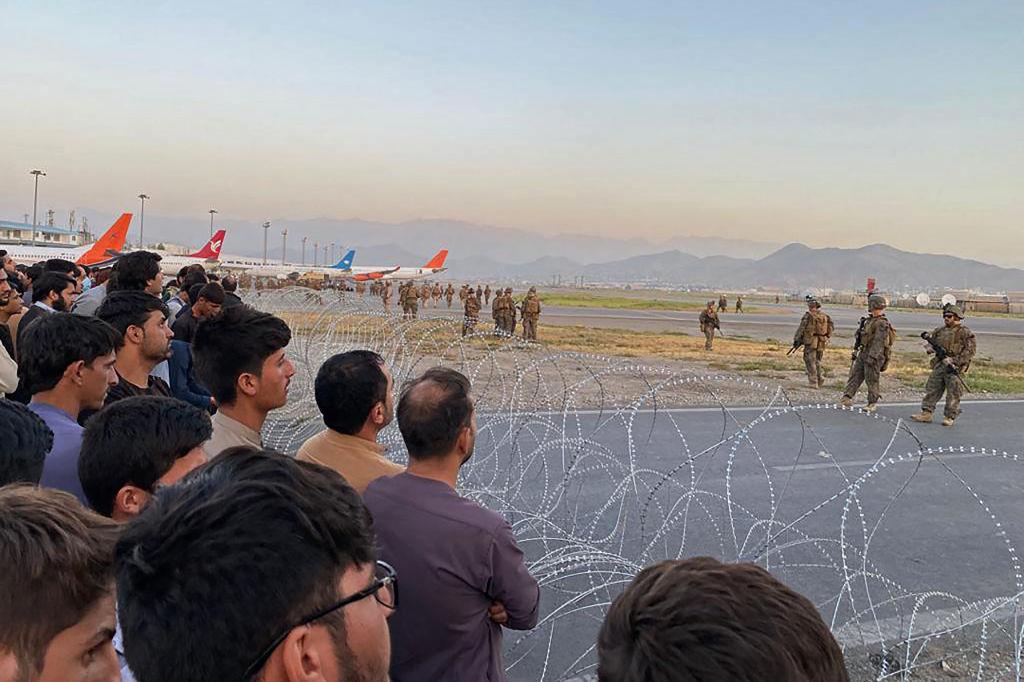
What is happening in Afghanistan is a tragedy for the millions of Afghans who believed the line that the United States, NATO, Australia and others were there to protect them and give the country a chance at stability.
US Secretary of State Antony Blinken is not being accurate when he claims that the only purpose of military operations in Afghanistan was to find and punish the perpetrators of the 9/11 attacks. For most of the past 20 years, the aim was to stop the country from being taken over by the Taliban and becoming a training ground for terrorists.
Two decades of investment to sustain that tenuous peace have been swept away. What conclusions should we draw from this debacle?
First, Joe Biden has defined his presidency with the most disastrous American foreign policy decision since the 2003 invasion of Iraq. The only thing worse than a ‘forever war’, as Biden has called the Afghan conflict, is a ‘forever defeat’. He has delivered that.
Biden could not have designed a more catastrophic withdrawal strategy. Let’s be clear: America cut and ran with as much panicked incoherence as Afghanistan’s poorly trained soldiers. There was no meaningful deliberation of an Afghanistan strategy inside the Biden administration.
There was no negotiation with Washington’s partners and no attempt to manage a handover to the Afghans, who were simply abandoned after a shameful ‘agreement for bringing peace’ was cut between the Trump administration and the Taliban, and subsequently endorsed by Biden.
An obvious lesson for America’s allies is that none of the administration’s words, about America being ‘back’ and wanting to work with its friends again, can be taken at face value.
Biden’s national security team are polished Ivy League technocrats. Do any of them have the grit to face up to the immense strategic pressures undermining America’s place as the world’s pre-eminent power?
A few thousand grimy Taliban fighters with AK-47s and Toyotas outlasted American power in Afghanistan. We are now asked to believe that a rout in Central Asia somehow better positions Washington to deal with the People’s Republic of China in the Indo-Pacific.
The US urgently needs to rethink how it will defend its interests globally against China, which is rapidly gaining military parity and, in some areas, superiority.
The US military, particularly the army and marines, emerged from the Iraq and Afghanistan wars a substantially broken force. The US retains immense air and sea power, but in many cases the technology is old and ill-suited to the speed and range of China’s missiles.
The US needs to redesign its military to deal with its ‘near peer’ adversary, Beijing. Moreover, this must be done at breakneck speed. Xi Jinping could well see a period of policy disarray in Washington and a US military system focused on evacuating people from Kabul as the right time for China to press its confected claims over Taiwan.
Here’s an example of how the compounding disaster in Afghanistan affects Indo-Pacific security. To provide more air combat and missile capability over Afghanistan while US forces withdraw, the aircraft carrier USS Ronald Reagan was moved from its Japanese port to the North Arabian Sea.
For some time, there was no US aircraft carrier battle group in the Pacific. This at a time when the level of Chinese air and sea incursions into Taiwanese space is at an unprecedented high. The USS Carl Vinson has just arrived in Hawaii for exercising, but it would take a while to get to north Asia in a crisis.
The British aircraft carrier HMS Queen Elizabeth is currently in Guam along with a NATO strike group, but the British are not positioned to respond to a significant regional crisis. Relocating the Ronald Reagan was necessary to backstop Biden’s impulsive Afghanistan withdrawal and done at the price of temporarily weakening American and allied interests in the North Pacific.
A key lesson from Afghanistan for America’s allies is that we all need to strengthen our own defence capabilities. We cannot assume that the US will just be over the horizon ready to defend our strategic interests. The US can raise very high barriers to its own involvement in regional security problems.
This is a tough message for Australia, which has become habituated to thinking that defence spending at a little over 2% of GDP and a defence force about two-thirds the size of a Melbourne Cricket Ground crowd is enough to defend the country.
A greater Australian defence effort is the best thing we can do to ensure the US stays committed to our security. We shouldn’t expect the US to be more interested in our defence than we are ourselves.
It’s possible that Biden would be prepared to commit the US to help defend Taiwan, but a country that’s capable of cutting a peace deal with the Taliban might conclude that Taiwan isn’t worth the fight.
Short of that scenario, Biden will look to Japan and Australia to be the security providers of first resort in Southeast Asia and the Pacific islands. Canberra will have to do more heavy lifting than it typically likes doing and paying for.
Who wins from the Afghan debacle? Terrorist organisations of all stripes win. Al-Qaeda and the so-called Islamic State will have access to their old training grounds. Russia wins because it relishes American discomfort.
Beijing wins. Foreign Minister Wang Yi has already met with Taliban leaders. China will be in Kabul before the end of the month with soft loans and hard power, offering ‘smart cities’ technology and ‘advisers’ to help the Taliban consolidate control.
Thanks to our shared efforts for two decades Kabul was stable; not Stockholm, certainly, but not Mosul under the IS ‘caliphate’ either. Now the Afghans will be in a world of pain for years, not that many people care. America and its allies are diminished in hard and soft power. Xi and Vladimir Putin will be laughing at our collective stupidity.